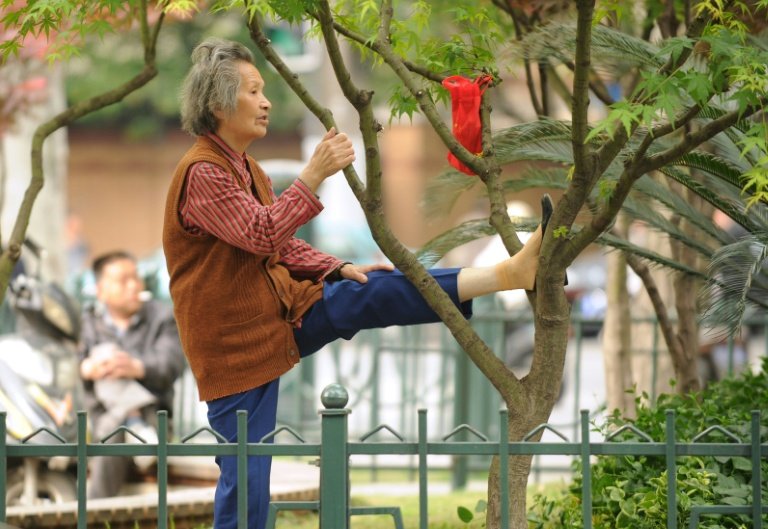
Entertainment
-
 European Court of Human Rights rejects Kirkorov’s case against Lithuania entry ban
The European Court of Human Rights (ECtHR) has dismissed a complaint filed by Russian pop star Philipp Kirkorov against Lithuania's decision to bar his entry into the country.23 April 2024Read More...
European Court of Human Rights rejects Kirkorov’s case against Lithuania entry ban
The European Court of Human Rights (ECtHR) has dismissed a complaint filed by Russian pop star Philipp Kirkorov against Lithuania's decision to bar his entry into the country.23 April 2024Read More... -
 Risnjak National Park: Croatia's hidden gem wins Europe's top spot
Nestled within Croatia's picturesque Gorski Kotar region, Risnjak National Park emerges as a beacon of untouched beauty, earning recognition as one of Europe's premier destinations sans the23 April 2024Read More...
Risnjak National Park: Croatia's hidden gem wins Europe's top spot
Nestled within Croatia's picturesque Gorski Kotar region, Risnjak National Park emerges as a beacon of untouched beauty, earning recognition as one of Europe's premier destinations sans the23 April 2024Read More... -
 Swiss castles experience record visitor numbers
In 2023, the National Association of Swiss Castles witnessed a historic milestone, welcoming over 1.3 million visitors to its 28 castles. This achievement marks a new record for the organization,23 April 2024Read More...
Swiss castles experience record visitor numbers
In 2023, the National Association of Swiss Castles witnessed a historic milestone, welcoming over 1.3 million visitors to its 28 castles. This achievement marks a new record for the organization,23 April 2024Read More... -
 Underground surge: Belgium grapples with 2,214 illegal gambling websites
Research conducted by gambling analysis firm Yield Sec has unveiled a concerning trend in Belgium's online gambling landscape. According to their findings, a staggering 2,214 illegal gambling14 April 2024Read More...
Underground surge: Belgium grapples with 2,214 illegal gambling websites
Research conducted by gambling analysis firm Yield Sec has unveiled a concerning trend in Belgium's online gambling landscape. According to their findings, a staggering 2,214 illegal gambling14 April 2024Read More... -
 Flanders and Brussels Embrace Slow Art Day, inviting visitors to savor artistic experiences
On April 13th, several museums in Flanders and Brussels will once again host a variety of activities as part of Slow Art Day, an annual tradition aimed at encouraging a deeper12 April 2024Read More...
Flanders and Brussels Embrace Slow Art Day, inviting visitors to savor artistic experiences
On April 13th, several museums in Flanders and Brussels will once again host a variety of activities as part of Slow Art Day, an annual tradition aimed at encouraging a deeper12 April 2024Read More... -
 4 Croatian beaches named Europe’s best
As Croatia gears up for what promises to be its most spectacular summer season yet, the BookRetreats Summer 2024 Report has officially unveiled the top beaches across Europe, catering to10 April 2024Read More...
4 Croatian beaches named Europe’s best
As Croatia gears up for what promises to be its most spectacular summer season yet, the BookRetreats Summer 2024 Report has officially unveiled the top beaches across Europe, catering to10 April 2024Read More... -
 Tourism thrives in Flanders, surpassing pre-pandemic levels
Preliminary data from the statistics agency Statbel reveal that tourism in Flanders soared in 2023, surpassing pre-pandemic levels. A total of 14.6 million domestic and international tourists29 March 2024Read More...
Tourism thrives in Flanders, surpassing pre-pandemic levels
Preliminary data from the statistics agency Statbel reveal that tourism in Flanders soared in 2023, surpassing pre-pandemic levels. A total of 14.6 million domestic and international tourists29 March 2024Read More...
News
-
 Rare book theft: Europol cracks down on international gang
In a collaborative effort involving European law enforcement agencies, Europol successfully apprehended four suspected individuals involved in the theft of antique and rare books.Read More...
Rare book theft: Europol cracks down on international gang
In a collaborative effort involving European law enforcement agencies, Europol successfully apprehended four suspected individuals involved in the theft of antique and rare books.Read More... -
 Embark on a journey: University of Porto launches free online Portuguese language course
The University of Porto has unveiled an exciting opportunity for language enthusiasts with the launch of a free online course designed to introduce learners to the Portuguese language.Read More...
Embark on a journey: University of Porto launches free online Portuguese language course
The University of Porto has unveiled an exciting opportunity for language enthusiasts with the launch of a free online course designed to introduce learners to the Portuguese language.Read More... -
 New study reveals camp Amersfoort's undisclosed role as a Holocaust concentration camp
Recent research conducted by historian Amanda Kluveld of Maastricht University has shed new light on the historical significance of Camp Amersfoort during the Second World War.Read More...
New study reveals camp Amersfoort's undisclosed role as a Holocaust concentration camp
Recent research conducted by historian Amanda Kluveld of Maastricht University has shed new light on the historical significance of Camp Amersfoort during the Second World War.Read More... -
 Bpost workers strike in Brussels and Wallonia
The ongoing strike at Bpost, the Belgian postal service, which commenced on Monday, has caused significant disruptions to its operations.Read More...
Bpost workers strike in Brussels and Wallonia
The ongoing strike at Bpost, the Belgian postal service, which commenced on Monday, has caused significant disruptions to its operations.Read More... -
 NATO Secretary General honored with Belgium's highest distinction
Jens Stoltenberg, the Secretary General of NATO since 2014, was awarded Belgium's highest honor, the Grand Cordon in the Order of Leopold, on Friday. Stoltenberg,Read More...
NATO Secretary General honored with Belgium's highest distinction
Jens Stoltenberg, the Secretary General of NATO since 2014, was awarded Belgium's highest honor, the Grand Cordon in the Order of Leopold, on Friday. Stoltenberg,Read More... -
 Amsterdam sees doubling of recent immigrants in ten years, mainly from Italy, UK, and US
The number of Amsterdam residents classified as recent immigrants—those born abroad and relocating to the Netherlands within the past decade—has surged twofold between 2013 and 2023,Read More...
Amsterdam sees doubling of recent immigrants in ten years, mainly from Italy, UK, and US
The number of Amsterdam residents classified as recent immigrants—those born abroad and relocating to the Netherlands within the past decade—has surged twofold between 2013 and 2023,Read More... -
 EU plans new sanctions following Iran's attack on Israel
In light of the significant Iranian air assault on Israel, the European Union is gearing up to implement sanctions targeting companies vital to Tehran's drone and missile production,Read More...
EU plans new sanctions following Iran's attack on Israel
In light of the significant Iranian air assault on Israel, the European Union is gearing up to implement sanctions targeting companies vital to Tehran's drone and missile production,Read More... -
 More than 30% of Belgians opt for cycling as commute option
A recent survey conducted by the FPS Mobility revealed that in 2023, over 30% of Belgians chose cycling as their mode of transportation for commuting to work, either entirely or partially.Read More...
More than 30% of Belgians opt for cycling as commute option
A recent survey conducted by the FPS Mobility revealed that in 2023, over 30% of Belgians chose cycling as their mode of transportation for commuting to work, either entirely or partially.Read More... -
 Direct train service from Amsterdam to Basel to be discontinued this summer
The daily train service connecting Amsterdam, Utrecht, and Arnhem to Switzerland will come to an end this summer, as German operator Deutsche Bahn has decided to discontinueRead More...
Direct train service from Amsterdam to Basel to be discontinued this summer
The daily train service connecting Amsterdam, Utrecht, and Arnhem to Switzerland will come to an end this summer, as German operator Deutsche Bahn has decided to discontinueRead More...

Most Read
- Teen held after US woman killed in London stabbings
- Football: Farhad Moshiri adamant Everton deal above board
- Greece hails new post-bailout chapter but concerns remain
- The Kokorev case caused wide discussion in Brussels
- EU accession talks stir debate in Moldova: insights from Gagauzia's leader, Yevgenia Gutsul
Business

The Russian company has for many years been overcharging and will now be required to refund nearly USD 1.5 billion to PGNiG.

The European Union has faced and survived a series of existential threats over the years but the coronavirus epidemic has exposed old wounds that could yet prove fatal.

Chinese internet giant Tencent recorded a jump in profit last year and said it could be a rare beneficiary of the global coronavirus pandemic as people stay home and businesses ramp up

Education is becoming an increasingly crucial component of contemporary European life. New skills and higher qualifications become necessary elements of the

– ‘Worst on record’ – Italy’s main agricultural union Coldiretti said 2019 has been a “black year”, with “a harvest almost halved” from the 23,300 tonnes of honey collected

Human rights group Amnesty International said Sunday it had "credible evidence" of the abuse and torture of people detained in sweeping arrests since Turkey's July 15 coup attempt.
The London-based group claimed some of those being held were being "subjected to beatings and torture, including rape, in official and unofficial detention centres in the country".
In Turkey, a senior official denied Amnesty's claims and vowed that Turkey would uphold human rights.
"The idea that Turkey, a country seeking European Union membership, would not respect the law is absurd," the official said.
"We categorically deny the allegations and encourage advocacy groups to provide an unbiased account of the legal steps that are being taken against people who murdered nearly 250 civilians in cold blood."
Since the failed coup, a total of 13,165 people have been detained, President Recep Tayyip Erdogan said late Saturday.

EgyptAir said wreckage from its passenger plane that crashed into the Mediterranean on Thursday with 66 people on board has been found.
"The Egyptian Ministry of Civil Aviation has just received an official letter from the Egyptian Ministry of Foreign Affairs that confirms the finding of wreckage of the missing aircraft No. MS 804," it said in English on its Twitter account.

Six suicide attacks in eight months and a spat with Russia have added to concerns for the Turkish economy as tourists flee, taking billions of dollars in spending elsewhere, and foreign investors skirt the troubled country.
Days after a suspected Islamic State of Iraq and the Levant (ISIL) jihadist blew himself up on a top shopping street in Istanbul, hotels, restaurants and retailers in the city are counting their losses.
Shops and restaurants on Istiklal Street, the usually bustling two-kilometer-long pedestrian artery targeted in the March 19 attack, complain of a sharp drop in business since the bombing, which killed four foreigners and injured dozens.
The attack on Istiklal — the beating heart of Turkey’s biggest city — emphasized the security threat after three deadly suicide attacks in Ankara.
While financial markets have so far reacted with relative sangfroid to the terrorist wave, analysts say the bloodshed is putting strain on Turkey, which is already battling high inflation and mid-term economic uncertainty.
“There could be large economic costs from these attacks, particularly in terms of long investment and the tourism sector,” William Jackson, senior emerging markets economist at Capital Economics in London, told AFP.

Japan's top court will rule this week on a pair of 19th century family laws that critics blast as sexist and out of touch.
The Supreme Court will weigh in on the legality of a six-month ban on women remarrying after divorce and another law that requires spouses to have the same surname, in a highly anticipated decision set for Wednesday.
The court will decide whether to uphold, amend or strike down the controversial legislation, which dates back to an era of starkly different social mores.
The half-year remarriage ban is linked to complex rules over the timing of a child's birth after divorce -- designed to determine whether a child belonged to the ex-husband or the new spouse's family in an era before DNA testing.
The surname rule is a throwback to Japan's feudal family system, in which all women and children came under the control of the head of household -- traditionally a man.
"Even if the feudal family system is long gone, many people still have the image of a woman marrying into the husband's household," said Waseda University law professor Masayuki Tanamura.
That system was abolished in 1948, part of broad reforms pushed by the post-World War II US occupation, but Japan's civil code maintained the two articles -- which will go before the court this week.
Activists say the laws are a continued reflection of the country's male-dominated society more than a century after they came into effect.
- Judicial tango -
Mother and activist Masae Ido knows firsthand the implications of the half-year ban on remarriage.
"These laws mean a woman remains under a man's sexual control even after divorce," Ido, 50, told AFP.
She vividly recalls her frustration after the birth of a child with her second husband.
A municipal official said her ex-husband must be registered as the father of her baby -- who, under the rules, was born too soon after they divorced -- even though he was not biologically related to the child.
The East Asia Pacific region is ageing at a faster rate than any other place in history, the World Bank warned Wednesday, a demographic shift likely to cramp public services and economic growth.
The region, which spans from Myanmar and China's western borders as far east as Japan, Papua New Guinea and the Pacific islands, is now home to a third of the world's over 65s -- some 211 million people.
That lurch towards older populations will have a significant impact on economic growth in a area of the globe that has been financially booming for much of the last two decades, according to the study.
The report is titled "Live Long and Prosper: Aging in East Asia and Pacific" -- a reference to the so-called Vulcan salute from the Star Trek sci-fi series.
Sharp falls in birthrates and a rise in life expectancy will likely heap pressure on public services while economies will struggle to fill the shortfall of working-age employees.
The region "has undergone the most dramatic demographic transition we have ever seen", said Axel van Trotsenburg, regional vice president of the World Bank's East Asia and Pacific Region.


















